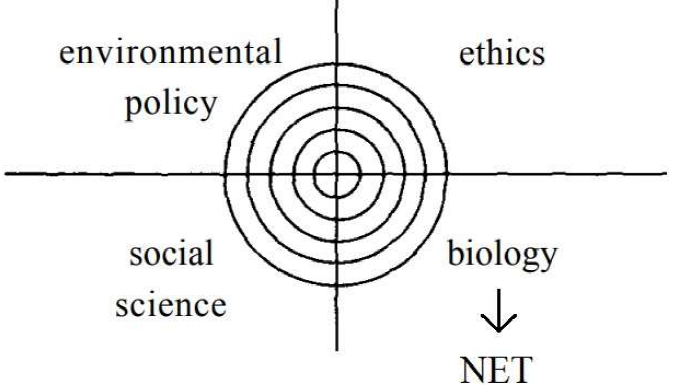
Asia Pacific Academy of Science Pte. Ltd. (APACSCI) specializes in international journal publishing. APACSCI adopts the open access publishing model and provides an important communication bridge for academic groups whose interest fields include engineering, technology, medicine, computer, mathematics, agriculture and forestry, and environment.

Fostering sustainable behavior through green leadership: The mediating role of environmental consciousness and moderating effect of goal clarity
Vol 5, Issue 2, 2025
Download PDF
Abstract
This study investigates the mechanisms through which green transformational leadership (GTL) and green authentic leadership (GAL) influence employees’ green behavior for sustainable development (EGB). Drawing from social cognitive and goal-setting theories, we examined the mediating role of environmental consciousness (EC) and the moderating role of goal clarity (GC) using survey data collected from 532 employees across diverse organizational contexts in China. Partial least squares structural equation modeling (PLS-SEM) via SmartPLS was employed to analyze the data. Results indicate that GTL and GAL positively impact EC and EGB directly. EC significantly mediates the relationship between both leadership styles and EGB, highlighting its critical psychological function in translating leadership practices into concrete environmental actions. Additionally, GC significantly strengthens the positive relationship between EC and EGB, demonstrating the importance of clearly articulated sustainability objectives in fostering sustainable workplace behaviors. These findings provide essential theoretical insights and practical implications for enhancing sustainability performance through targeted leadership practices, environmental awareness initiatives, and effective sustainability goal-setting strategies.
Keywords
References
1. Ali W, Ahmed N, Yousaf A, et al. Greening the workforce to achieve environmental performance in hotel industry: A serial mediation model. Journal of Hospitality and Tourism Management. 2020.
2. Zhang W, Zhang W, Daim TU. The voluntary green behavior in green technology innovation: The dual effects of green human resource management system and leader green traits. Journal of Business Research. 2023; 165: 114049. doi: 10.1016/j.jbusres.2023.114049
3. Farrukh M, Rafiq M, Karatepe OM, et al. Unleashing the Pygmalion’s nudge: The roles of leadership styles and leader expectations in driving employees’ pro-environmental behaviors. International Journal of Hospitality Management. 2025; 124: 103999. doi: 10.1016/j.ijhm.2024.103999
4. Lee SM, Park S, Trimi S. Greening with IT: practices of leading countries and strategies of followers. Management Decision. 2013; 51(3): 629-642. doi: 10.1108/00251741311309698
5. Yeşiltaş M, Gürlek M, Kenar G. Organizational green culture and green employee behavior: Differences between green and non-green hotels. Journal of Cleaner Production. 2022; 343: 131051. doi: 10.1016/j.jclepro.2022.131051
6. Luu TT. Can green creativity be fostered? Unfolding the roles of perceived green human resource management practices, dual mediation paths, and perceived environmentally-specific authentic leadership. The International Journal of Human Resource Management. 2021; 34(6): 1246-1273. doi: 10.1080/09585192.2021.1986107
7. Ansari NY, Farrukh M, Raza A. Green human resource management and employees pro‐environmental behaviours: Examining the underlying mechanism. Corporate Social Responsibility and Environmental Management. 2020; 28(1): 229-238. doi: 10.1002/csr.2044
8. Soni M. Environmentally specific transformational leadership and pro-environmental behavior: an empirical analysis of energy sector. International Journal of Organizational Analysis. 2022; 31(7): 3179-3194. doi: 10.1108/ijoa-01-2022-3117
9. Stern PC. New Environmental Theories: Toward a Coherent Theory of Environmentally Significant Behavior. Journal of Social Issues. 2000; 56(3): 407-424. doi: 10.1111/0022-4537.00175
10. Farrukh M, Raza A, Rafiq M, et al. Team GHRM and Team Pro-environmental behavior. Environment, Development and Sustainability; 2024. doi: 10.1007/s10668-024-05448-x
11. Waheed A, Shahid Khan M, Warraich MA, et al. Environmental policy vs. Environmental innovation: An examination of policies disclosure on sustainable development from stakeholder theory perspective. Sustainable Development. 2023; 32(3): 2506-2516. doi: 10.1002/sd.2782
12. Chen T, Wu Z. How to facilitate employees’ green behavior? The joint role of green human resource management practice and green transformational leadership. Frontiers in Psychology. 2022; 13. doi: 10.3389/fpsyg.2022.906869
13. Gardner WL, Avolio BJ, Luthans F, et al. “Can you see the real me?” A self-based model of authentic leader and follower development. The Leadership Quarterly. 2005; 16(3): 343-372. doi: 10.1016/j.leaqua.2005.03.003
14. Begum S, Ashfaq M, Xia E, et al. Does green transformational leadership lead to green innovation? The role of green thinking and creative process engagement. Business Strategy and the Environment. 2021; 31(1): 580-597. doi: 10.1002/bse.2911
15. Farrukh M, Raza A, Rafiq M. Environmentally specific authentic leadership and team green creative behavior based on cognitive-affective path systems. International Journal of Contemporary Hospitality Management. 2023; 35(10): 3662-3680. doi: 10.1108/ijchm-04-2022-0530
16. Gifford R, Nilsson A. Personal and social factors that influence pro-environmental concern and behaviour: A review. International Journal of Psychology. 2014. doi: 10.1002/ijop.12034
17. Kollmuss A, Agyeman J. Mind the Gap: Why do people act environmentally and what are the barriers to pro-environmental behavior?. Environmental Education Research. 2002; 8(3): 239-260. doi: 10.1080/13504620220145401
18. Vlek C, Steg L. Human Behavior and Environmental Sustainability: Problems, Driving Forces, and Research Topics. Journal of Social Issues. 2007; 63(1): 1-19. doi: 10.1111/j.1540-4560.2007.00493.x
19. Locke EA, Latham GP. Work Motivation and Satisfaction: Light at the End of the Tunnel. Psychological Science. 1990; 1(4): 240-246. doi: 10.1111/j.1467-9280.1990.tb00207.x
20. Locke EA, Latham GP. A Theory of Goal Setting & Task Performance. Prentice-Hall, Inc; 1990.
21. Lozano R, von Haartman R. Reinforcing the Holistic Perspective of Sustainability: Analysis of the Importance of Sustainability Drivers in Organizations. Corporate Social Responsibility and Environmental Management. 2017; 25(4): 508-522. doi: 10.1002/csr.1475
22. Boiral O, Paillé P. Organizational Citizenship Behaviour for the Environment: Measurement and Validation. Journal of Business Ethics. 2011; 109(4): 431-445. doi: 10.1007/s10551-011-1138-9
23. Robertson JL, Barling J. Greening organizations through leaders’ influence on employees’ pro‐environmental behaviors. Journal of Organizational Behavior. 2012; 34(2): 176-194. doi: 10.1002/job.1820
24. Srivastava AP, Mani V, Yadav M, et al. Authentic leadership towards sustainability in higher education—an integrated green model. International Journal of Manpower. 2020; 41(7): 901-923. doi: 10.1108/ijm-08-2019-0404
25. Norton TA, Zacher H, Ashkanasy NM. On the Importance of Pro-Environmental Organizational Climate for Employee Green Behavior. Industrial and Organizational Psychology. 2012; 5(4): 497-500. doi: 10.1111/j.1754-9434.2012.01487.x
26. Farrukh M, Ansari N, Raza A, et al. Fostering employee’s pro-environmental behavior through green transformational leadership, green human resource management and environmental knowledge. Technological Forecasting and Social Change. 2022; 179: 121643. doi: 10.1016/j.techfore.2022.121643
27. Hair JF, Hult GTM, Ringle C, Sarstedt M. A Primer on Partial Least Squares Structural Equation Modeling (PLS-SEM), 3rd ed. Sage Publications, Los Angeles, USA; 2023.
28. Kline RB. Convergence of Structural Equation Modeling and Multilevel Modeling. The SAGE Handbook of Innovation in Social Research Methods; 2011.
29. Li Y, Khan MS. Impact of Perceived Organizational Support on Turnover Intention in Luxury Hotels: The Mediating Role of the Perceived Value of Artificial Intelligence. Vision: The Journal of Business Perspective. 2023. doi: 10.1177/09722629231180435
30. Quan J, Khan MS. The Mediating Role of Job Satisfaction and Competitive Advantage Between Quality Management Practices and Sustainable Performance: Case of Hospitals in Guangxi, China. Sage Journal. 2024.
31. Ahmed T, Khan MS, Thitivesa D, et al. Impact of employees engagement and knowledge sharing on organizational performance: Study of HR challenges in COVID-19 pandemic. Human Systems Management. 2020; 39(4): 589-601. doi: 10.3233/hsm-201052
Supporting Agencies
SSRU
Copyright (c) 2025 Author(s)
License URL: https://creativecommons.org/licenses/by/4.0/

This site is licensed under a Creative Commons Attribution 4.0 International License (CC BY 4.0).

University of Lapland, Finland

Yaroslav Mudryi National Law University, Ukraine
-
-
-
EBSCO
-
HEINONLINE
-
Crossref
-
Publons
-
ROAD
-
WorldCat
-
J-Gate
-
Scilit
-
EuroPub
-
SSRN
-
Index of Copernicus
-
CiteFactor
-
Dimensions
-
DRJI
-
Zenodo
-
TrendMD
-
OpenAIRE
-
-

